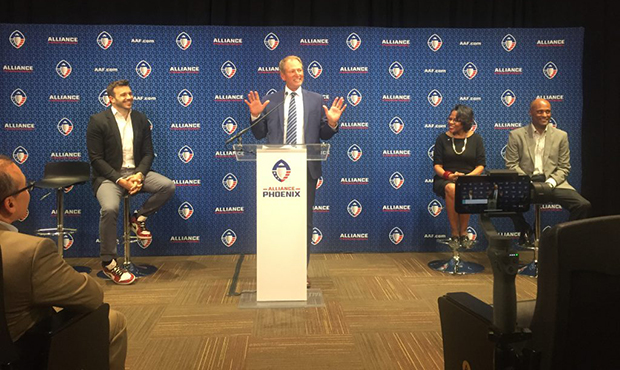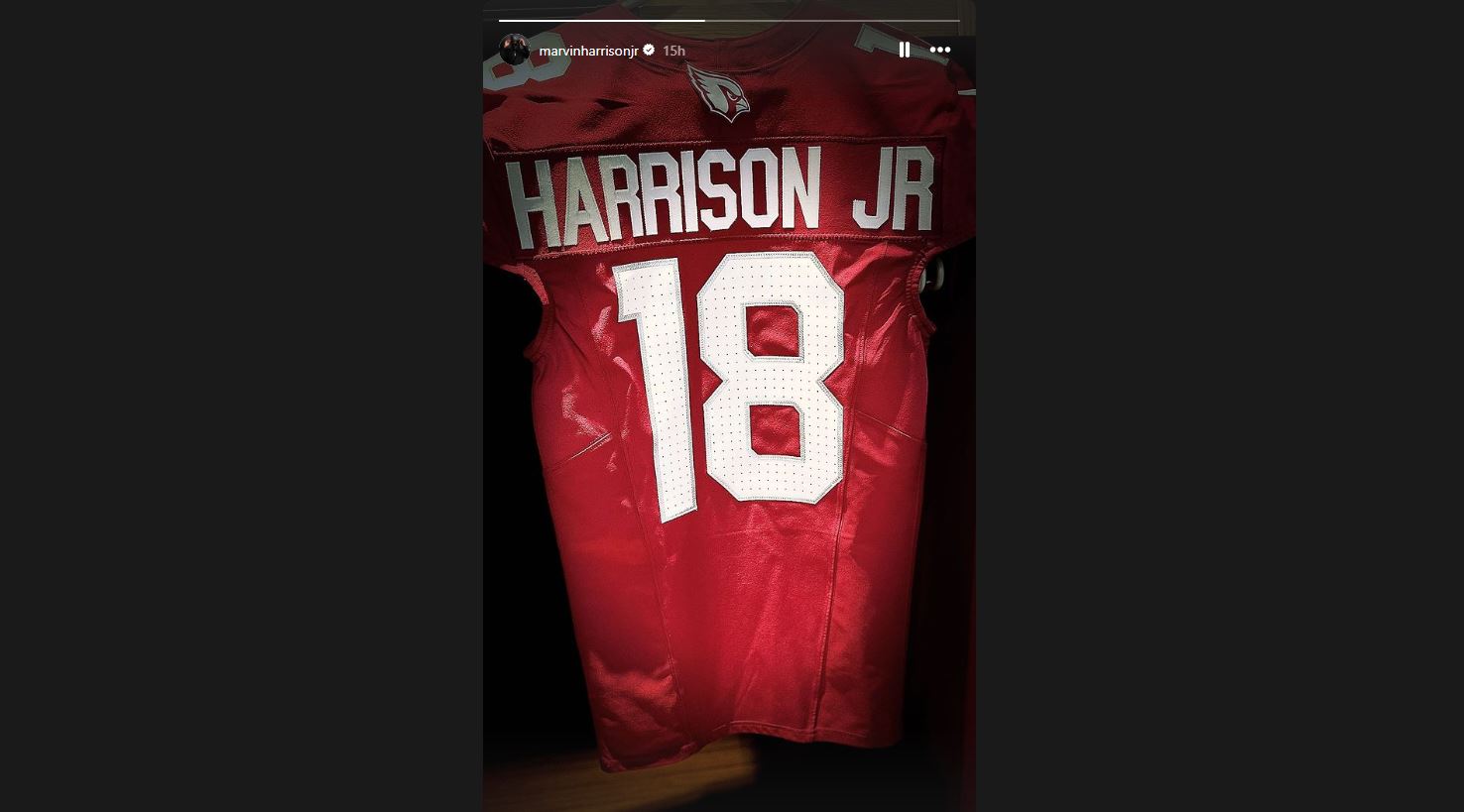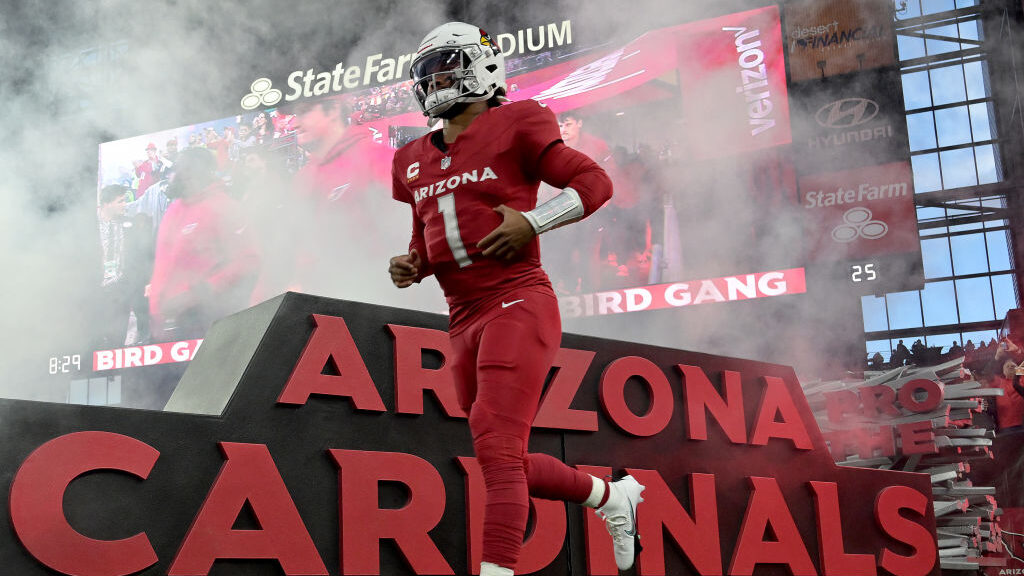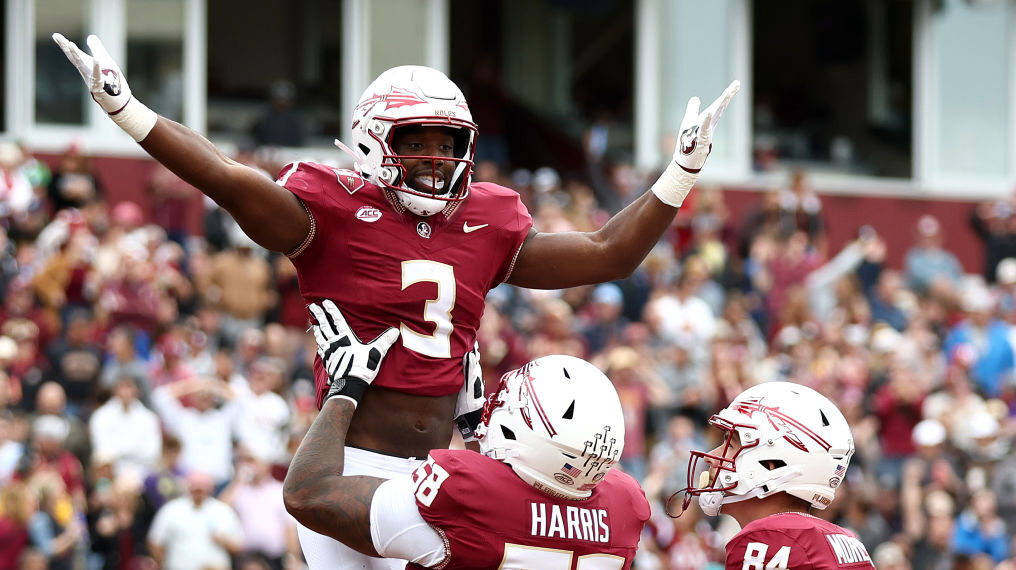Coach Rick Neuheisel, AAF believe in Arizona market for more pro football
May 18, 2018, 3:53 PM

Left to right, Alliance of American Football co-founder Charlie Ebersol, coach Rick Neuheisel, ASU Vice President for Cultural Affairs Colleen Jennings-Roggensack and ASU Vice President of University Athletics Ray Anderson (Kevin Zimmerman/Arizona Sports)
(Kevin Zimmerman/Arizona Sports)
TEMPE, Ariz. — The Alliance of American Football, an upstart pro football league, believes it can make Arizona its home. It believes it can create a unique fan experience, one more engaging to but complementary with the NFL’s model.
Co-founded by Charlie Ebersol, the son of NBC executive Dick Ebersol, the league announced Friday that former Colorado, Washington and UCLA coach Rick Neuheisel will be head coach of its Sun Devil Stadium-based pro football team, the fifth named team of eight that will debut in 2019.
A former quarterback for McClintock High School in Tempe, Neuheisel has deep roots in the Valley. His father taught law classes at ASU, and the homegrown coach played a large part in the AAF believing a yet-to-be-named spring pro football team can succeed in Arizona.
“This is exactly the perfect fit for me,” Neuheisel said. “I grew up coming to games at ASU.”
Along with Neuheisel’s persistence, Ebersol’s familiarity with Arizona State Vice President of University Athletics Ray Anderson, who was formerly an NFL executive and player agent, also helped the AAF team land in Tempe.
According to Ebersol, the league wants to create an affinity between fans and players that doesn’t exist in the NFL.
That’s where Neuheisel comes in.
“He knew what it was to play here both as a local and as an opposing coach,” Ebersol said. “To capture that affinity was really important.”
Neuheisel joins former college and/or NFL head coaches Steve Spurrier (Orlando), Mike Singletary (Memphis), Dennis Erickson (Salt Lake City) and Brad Childress (Atlanta) among the leaders of the eight-team league, which will play 10-game seasons that will run in February through late April starting next year.
In other words, when the NFL is not playing.
Neuheisel will retain his job as a college football analyst with CBS and said the opportunity to teach in a familiar locale was “serendipity.”
“From 1967 through 1979, when I left to go to UCLA, I went to every (ASU) football game,” the coach said. “To be back here to have a chance to jump-start my football career, which I’ve missed terribly … is unbelievably exciting for me.”
Here’s why the AAF, which was founded in March, believes it can draw eyeballs and put bodies in Sun Devil Stadium’s seats, and what the league hopes to accomplish.
It believes there is interest
Ebersol said that 80 million fans are left without a product after the Super Bowl is played in early February.
Twenty million fantasy players suddenly have nothing to do.
The co-founder compared it to ride-sharing services like Uber or Lyft servicing 80 million people before suddenly shutting down operation for months out of the year.
The league believes there is good talent
Neuheisel said the league will not be a developmental league, but it will develop players. The former quarterback played in the USFL for the San Antonio Gunslingers from 1984-85 and believes that defunct league had talent then — many USFL players went back to the NFL after the league folded three years into existence.
Growing too quickly and not vetting qualified owners bit the USFL, Neuheisel said.
AAF player relations vice president and investor Jared Allen, a former NFL player, said that NFL practice squad players never get the opportunity to grow with real game reps. They will see opportunity with the AAF.
“You always have camp bodies. You got these guys who come in, you know they’re not going to make the team,” Allen said. “They’ve been maybe two to three years in camp, and at what point do you realize you’re doing this guy a disservice? Where has he gotten any reps to think he’ll be better a year later?
“That guy may not feel like he’s completely lived his dream.”
The AAF hopes to provide that dream to help players determine whether they can make the NFL. And the coaches in the league think they can help develop contacts and promote those players to the NFL if they are talented enough.
If not, Allen said the AAF will provide life-after-football opportunities through secondary education scholarships and other avenues.
ASU is a fitting partner
The Sun Devils have discussed ways to use Sun Devil Stadium as a multi-purpose event venue beyond home football games. This is one of those avenues.
Additionally, Arizona State hopes its affiliation with the AAF — like its programs with Adidas and Starbucks, among others — will provide internships, jobs and learning opportunities.
“We pride ourselves here at ASU on partnerships that have an impact in our community,” Anderson said. “You think of that impact and you knew you had to figure it out.”
Both ASU and the AAF hinted at potential local twists to filling out the roster of the pro team that would involve the Sun Devils, Arizona Wildcats and Northern Arizona Lumberjacks. Keeping familiar names in the state will help connect fans to the team.
“This is homegrown stuff. I think that’s the idea behind this league,” Neuheisel said.
Ebersol cited the University of Central Florida football team, the Oklahoma City Thunder NBA market and Major League Soccer experiences as comparable business models that built local interest in various markets across the United States.
Fan-athlete engagement
Creating an affinity between fan and athletes is the key for the league to succeed, said Ebersol.
Neuheisel is part of that.
So is Allen, the former Minnesota Vikings defensive lineman. His wife, who attended ASU, makes him familiar with the location.
Ebersol said the pay structure for the athletes will be performance-based on wins and statistics — but also fan engagement based. The co-founder said the league wants to build around the community in a way the NFL has failed.
Shorter, more engaging viewing experience
The AAF believes it can create an improved experience for fans both at the stadium and at home.
With CBS broadcasting the league beginning Feb. 9, 2019, there is a television partnership in place.
The league has yet to release a fantasy experience that will allow fans to interact with friends. It will be unlike current fantasy, Ebersol said, which is a “passive” experience during gametime.
Whereas fans set their lineups the days leading into Sunday NFL games, the AAF wants fans using their mobile phones to play fantasy as the game goes along.
And the games will be short.
Kickoffs will be eliminated due to player safety and fan interest concerns, but most of the rules will mirror that of the NFL.
There will be no TV timeouts, and Ebersol mentioned a hope for 2.5-hour game-times.
He wants the cost and time spent by fans who attend to rival that of a family going out to see a movie.








Comments